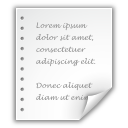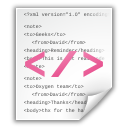This item is
Attribution-NonCommercial-ShareAlike 3.0 Unported (CC BY-NC-SA 3.0)
Publicly Available
and licensed under:Attribution-NonCommercial-ShareAlike 3.0 Unported (CC BY-NC-SA 3.0)
Files for this item
Download all local files for this item (41.11 KB)

- Name
- leibnez-2061.txt
- Size
- 36 KB
- Format
- Text file
- Description
- Version of the work in plain text format
1898
THE MONADOLOGY
by Gottfried Wilhelm Leibniz
translated by Robert Latta
1. The Monad, of which we shall here speak, is nothing but a
simple substance, which enters into compounds. By 'simple' is meant
'without parts.' (Theod. 10.)
2. And there must be simple substances, since there are compounds;
for a compound is nothing but a collection or aggregatum of simple
things.
3. Now where there are no parts, there can be neither extension
nor form [figure] nor divisibility. These Monads are the real atoms of
nature and, in a word, the elements of things.
4. No dissolution of these elements need be feared, and there is
no conceivable way in which a simple substance can be destroyed by
natural means. (Theod. 89.)
5. For the same reason there is no conceivable way in which a simple
substance can come into being by natural means, since it cannot be
formed by . . .






